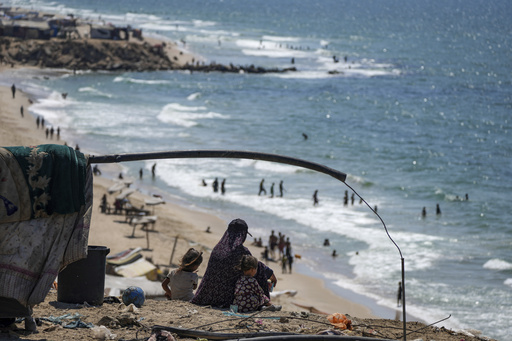Egypt, a key mediator in the cease-fire talks between Israel and Hamas, expressed doubts on Wednesday as more details of a proposed bridging agreement emerged before negotiations were set to resume in Cairo the following day.
The bridging proposal, aimed at bridging gaps in the negotiations, has raised skepticism and challenges, dampening the optimism brought by U.S. Secretary of State Antony Blinken during his recent visit to the region. President Joe Biden was scheduled to speak with Israeli Prime Minister Benjamin Netanyahu on Wednesday.
Diplomatic efforts have intensified amidst concerns of a broader regional conflict following targeted killings of Hamas and Hezbollah leaders, attributed to Israel, and threats of retaliation.
Egypt, playing a critical role as a mediator and a neighboring country to Gaza, shared concerns with The Associated Press about Hamas’s reluctance to accept the bridging proposal due to various reasons, including doubts about whether it would lead to the removal of Israeli forces from Gaza and a sustainable end to the conflict.
Officials in Egypt revealed that Hamas is hesitant to agree to the proposal as it mandates the release of vulnerable civilian hostages captured in an attack by Hamas on Israel on October 7 as the first phase, without guarantees for a permanent cease-fire in subsequent phases.
The proposal reportedly does not specify a full withdrawal of Israeli forces from strategic corridors in Gaza, leading to discontent among Egyptian officials and Hamas.
Amidst ongoing negotiations, there are concerns that Israel’s refusal to commit to a complete withdrawal from Gaza and its insistence on maintaining control over certain areas could impede progress in reaching a comprehensive agreement.
Egypt has emphasized the importance of a complete Israeli withdrawal from specified areas as a condition for reopening the Rafah crossing, a crucial entry point for humanitarian aid into Gaza.
Hamas has raised objections to new demands in the bridging proposal, including the continued presence of Israeli forces in certain areas, the search of displaced Palestinians, and changes to the exchange of hostages.
Efforts continue to bridge the gaps in the negotiations, with mediators scheduled to convene in Cairo for further discussions before presenting the proposal to Hamas.
The conflict in Gaza, now in its 10th month, has caused significant devastation and displacement, with concerns about the outbreak of diseases. The recent attack by Hamas resulted in casualties in Israel, with many hostages still believed to be held.
Israeli authorities estimate that hundreds of the hostages held by Hamas are deceased, with the recovery of some bodies in Gaza this week highlighting the ongoing human cost of the conflict.
In the midst of the uncertainty surrounding the negotiations, there is skepticism in Israel about Netanyahu’s commitment to securing an agreement, with concerns raised about the ongoing crossfire along Israel’s border with Lebanon.
As tensions persist and diplomatic efforts continue, the region remains on edge awaiting potential developments in the negotiations between Israel and Hamas.


